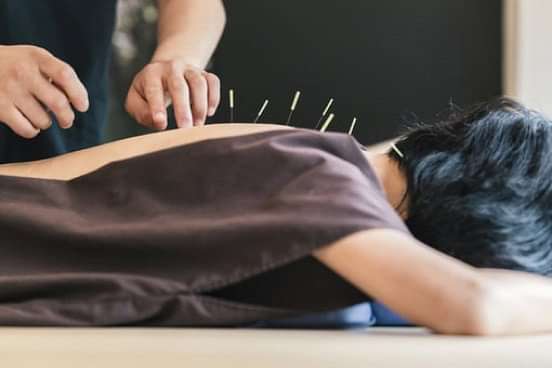- Holiday Wellness Guide: Staying Fit Through Christmas and the New Year
- Top Winter Wellness Rituals Backed by Ayurveda and Modern Science
- 7 Reasons to Discover Ultimate Serenity with Naturopathy
- Embrace Wellness Winter
- 7 Wellness Tips For Your Longevity
- World Mental Health Day: Essential Insights for Balanced Life
- 5 Ways to Achieve Optimal Digestive Health
- Exploring the Health Benefits of 5 Popular Types of Massages
- How Spas Rejuvenate the Body, Mind, and Soul
- What is Swedish Massage
- Valuka Sweda
- Januvasti
- Annalepam
- Navara Kizhi
- Shiro Vasti
- Udhwarthanam
- Podikizhi
- Pizhichil
- Upanaham
- Merudanda Vashti
- Netra Tarpana
- Greeva Pichu
- Greeva Vasti
- Merudanda Pichu
- What is Ayurveda?
- The Benefits of Practicing Ayurveda
- Ayurveda: An Alternative Medicine
- Techniques and Benefits of Shiro Abhyanga in Ayurveda
- The Ayurvedic Cleanse of Panchakarma
- How Padabhyangam Therapy Heals Your Body and Mind
- Elements in Ayurveda and their Significance
- Live The Tranquil Life
- Detox and Rejuvenate with Acupuncture
- Lifestyle Management with Yoga and Meditation
- A Unique Approach To A Healthy Diet
- Weight Management with Ayurveda
- Wellness Retreats to Celebrate Women's Day
- Best Stress Relief Techniques
- Benefits of Massage Therapy
- 10 Quick & Easy Fresh Juice Recipes
- Everything you need to know about Holistic Health Assessment
- Essence of Yoga
- Why Must You Practice Yoga Regularly?
- The Basics of Ayurveda
- Boost Your Immunity With Naturopathy Amidst The Pandemic
- 5 Ways To Bring Down The Risk Of Seasonal Diseases
- 5 Amazing Tips To Improve Your Immunity
- 4 Everyday Habits That Might Be Harming Your Gut Health
- Reiki: The Healing Touch
- Your Ultimate Guide To Chakra Meditation
- Embrace the Naturopathic Way of Life
- Best Therapies for Chronic Neck Pain
- 4 Things Not To Do After A Filling Meal
- 8 Things That Weaken Your Immune System
- Try These 12 Things to Beat Panic and Stay Calm
- Beat Stress With These Foods During COVID-19
- Diet and Depression: What to Eat, What to Avoid
- Is Depression Keeping You Sedentary? Here is what you can do
- A Low FODMAP Diet For Better Digestive Health
- Want to Increase Sperm Count? Go the Nature's Way
- Home Remedies to Manage your PCOS
- Try Ayurveda to get pregnant faster
- Try Fertility Yoga to Support Reproductive Health
- Should You Ditch Dairy Products For Weight Loss?
- 6 Principles of naturopathy you should know about
- 9 Home Remedies For Digestive Issues
- Ayurvedic Remedies to treat COVID-19
- Importance of Doshas
- Acupuncture: The perfect healing therapy to boost fertility
- Fighting COVID-19 with Ayurveda
- A positive attitude will help you deal with COVID-19
- Practice yoga to boost mental health during COVID-19
- What to do when taking a deep breath just isn't enough
- Four Things To Gift Your Dad This Father’s Day
- Simple Steps To Spend Your 4th Of July Weekend
- 5 Amazing Things to Do During This Fall When You Plan Your Trip
- 4 Therapies for women dealing with stress & anxiety
- Importance of Ayurvedic Treatment in The Modern World
- What is Naturopathy & how does it benefit you?
- 10 Winter Wellness Tips For Your Health
- Weekend Getaways & Health Benefits
- The Importance Of Having Corporate Retreats
- 6 Reasons Why You Should Go To Health and Wellness Retreat
- 6 Habits to Consider in New Years Resolutions
- 5 Tips to Welcome Healthy Spring Season
- 6 Wellness Tips to Reignite the Spark of Love this Valentine Day
- 6 Wellness Tips for Longevity
- Catskills Most Sought Destination for Wellness Lovers
- 5 Springtime Wellness Tips
- How Detoxing Your Body Can Contribute to Your Holistic Wellbeing
- Unlock Secrets of Longevity with Spring Rejuvenation
- World Health Day: 6 Ways To Embrace The Power of Good Health
- Things To Do Around The Bethel Woods Center of Arts
- 5 Healthy Habits to Attain Longevity
- Mother's Day Give Her Gift of Wellness
- How To Deal With Anxiety and Depression
- Yoga For Beginners
- How to Make the Most of International Yoga Day
- Benefits Of Shirodhara Therapy To Restore Your Wellbeing
- Stress Taking A Toll On Your Health?
- How a Wellness Retreat Can Help You Get Through Panic Attacks
- Elevating Your Mind, Body, and Soul with Effective Wellness Prog
- Unlock the Secret to Restful Nights: YO1's Insomnia Management P
- Tips for a Healthier Labor Day Weekend
- Why Choose a Wellness Retreat Over a Typical Holiday
- 5 Ways to Unlock Optimal Health and Wellness
- World Vegetarian Day Health Benefits
- Catskills Resort Perfect Wedding Venues
- Stress Management Program for Mind Body
- Role of Healthy Diet in Longevity
- Enhancing Couple Wellness this Valentine Day
- 6 Anxiety Management Tips
- Wellness Benefits of Spa Treatments
- Womens Wellness Retreat A Step by Step Guide
- Weight Management Why It Matters
- Tips for Spring Season
- Self Care Simple Strategies
- 7 Spring Season Foods to Boost Health
- How Yoga Can Improve Physical and Mental Health
- Top Natural Remedies for Spring Allergy Relief
- How Hydrotherapy Impact the Mind and Body
- Tips For Managing Daily Anxiety and Stress
- Celebrate International Yoga Day with Top 10 Yoga Poses
- 10 Nutritious Foods to Manage Type 2 Diabetes
- Meditation Techniques to Calm Anxious Mind
- What to Expect During the Ayurvedic Detox Program?
- Top 10 Benefits of Acupuncture Therapy
- What to Expect From Your First Yoga Retreat
- YO1 Resorts Featured in Smile 2 Movie
- Bethel Woods Center for the Arts: All You Need to Know
- Everything You Need to Know About Deep Tissue Massage
- Ways to Celebrate Labor Day
- Best Wellness Resorts in Catskills New York
- 5 Common Myths About Weight Management
- Luxury Recovery at YO1 for Spartans Race
Ayurveda is considered by many scholars to be the oldest healing therapy of the world. In Sanskrit, Ayurveda means ‘The Science of Life’. Ayurvedic knowledge originated in India more than 5,000 years ago and is often called the ‘Mother of All Healing’. This healing therapy places great emphasis on preventive techniques and encourages the maintenance of health through close attention to balance in one’s life, right thinking, diet, lifestyle and the use of herbs. Knowledge of Ayurveda enables one to understand how to create this balance of body, mind and consciousness according to one’s own individual constitution and how to make lifestyle changes to bring about and maintain this balance.
The Importance of Doshas in Maintaining this Balance
Doshas are the vital energies or humor, which control the whole body. The physiology of the human body is governed by three vital energies, which can never be measured in any real sense, but only observed and monitored. According to Ayurveda, everything in existence is made up of five elements: Earth, Water, Fire, Air, and Ether/Space. These five elements are expressed as three Dosha types in the human body. Vata corresponds to Ether and Air, Pitta corresponds to Fire and Water, and Kapha corresponds to Earth and Water. Each person has a unique combination of Doshas from birth. This is referred to as your body constitution.
It is important to note that the word Dosha in Sanskrit translates to the English word ‘fault’, meaning a crash or point of weakness where you might go out of balance. By knowing your dominant Dosha and constitution, you can more easily identify where and when you fall out of balance. You can also quickly and effectively bring back balance by including Dosha balancing foods in your diet, exercising and performing recommended activities.

Vata Dosha
Those with a Vata constitution had air and ether predominantly present during their birth. Vata is responsible for the body’s energy, movement and nerve impulses, which manifests as breath, circulation, elimination, and flow of thoughts.
Balancing Vata: When balanced, people with Vata Dosha are enthusiastic, light, creative, alert, quick-witted, active and open to new experiences. When out of balance, Vatas will become anxious and suffer from insomnia, constipation, gas, bloating, dry and/or rough skin. They are also prone to bouts of headache, back and/or joint pain, and cold hands and feet.
Diet for Vata: Since Vata types need to balance their cold, light, airy and dry qualities, they need to eat foods that are warm, heavy, dense, and moist. They also require sweet, sour, and salty foods. It’s important for Vatas to avoid alcohol, caffeine, chocolate and stress. They need to maintain regular bedtimes and mealtimes and indulge in moderate exercise and meditation daily. Such people should try to stay in warm, humid, quiet, safe, and comfortable environments.

Pitta Dosha
Pitta is governed by fire and water and is responsible for transformation and regulation of metabolism, body temperature, digestion and intelligence. Pitta is essential for the digestive and endocrine system of the body.
Balancing Pitta: When balanced, Pitta types are content and well-structured with strong digestion, good vision, sharp intellect, and radiant skin. When out of balance, Pittas can become angry or hot-headed and may experience acid indigestion, diarrhoea, gastritis, stomach and intestinal ulcers, fever, hot flashes, infections, rashes, acne, eczema and liver infections.
Diet for Pitta: Since Pittas need to bring balance to their hot, fluid, and sharp qualities, they need to eat cool, dry, and mild foods. They also require sweet, bitter, and astringent foods. It’s important that Pitta types practice moderation, take time for play and laughter, spend time in nature (especially around bodies of water) and enjoy exercise (but avoid extreme workouts or competition). Pitta types should also avoid sources of heat (e.g. mid-day sun) and stay in cool, well-ventilated environments.

Kapha Dosha
Kapha’s prominent energies are water and earth. Kapha is essential for structure and fluidity, and manifests as weight, growth, strength, tissue lubrication, and formation.
Balancing Kapha: When balanced, Kapha types are lovable, strong, patient, loyal, supportive, stable and calm. When out of balance, Kaphas may become greedy, lethargic and depressed and may suffer from obesity, diabetes, respiratory problems like asthma and bronchitis, and swelling and tumors. They may also become resistant to change and hang on to things and people after they are no longer necessary.
Diet for Kapha: Since people with Kapha Dosha need to balance their moist, soft and heavy qualities, they need to eat light, dry and fiery foods. They also benefit from eating astringent, bitter and pungent foods. In addition, it’s important for Kaphas to wake up before 6 a.m., take their main meal at noon and exercise regularly and vigorously. Kaphas tend to adhere to their routine, but they need variety and new experiences. They benefit from dry, warm environments.
Balancing Kapha: When balanced, Kapha types are lovable, strong, patient, loyal, supportive, stable and calm. When out of balance, Kaphas may become greedy, lethargic and depressed and may suffer from obesity, diabetes, respiratory problems like asthma and bronchitis, and swelling and tumors. They may also become resistant to change and hang on to things and people after they are no longer necessary.
Diet for Kapha: Since people with Kapha Dosha need to balance their moist, soft and heavy qualities, they need to eat light, dry and fiery foods. They also benefit from eating astringent, bitter and pungent foods. In addition, it’s important for Kaphas to wake up before 6 a.m., take their main meal at noon and exercise regularly and vigorously. Kaphas tend to adhere to their routine, but they need variety and new experiences. They benefit from dry, warm environments.
Constitution - Body Type
Prakruti, an individual’s baseline constitution is determined at the time of conception and relates to inborn or permanent physical and emotional characteristics and tendencies. These would include qualities such as height, natural eye and hair colour and innate personality qualities. While all three doshas are present in every constitution, they are present in different ratios. For example, some may have a high concentration of Pitta (fire) in their constitution, with Kapha (earth) secondary and only a small amount of Vata (air), but someone else may have a different combination.
Knowing your constitution is useful because it increases awareness of your natural strengths and challenges. This can be a positive step towards understanding health. A combination of two Dosha is called Dwandwaja, which is common in everyone. Tridoshaja is a combination of three Doshas and Ekadoshaja is the term for those exhibiting a single Dosha type, which is rare. In this manner, there are a total of 7 types of constitution.
With a combination of all these additional types, there are a more complex array of types that are best determined by an Ayurvedic wellness specialist who can help you determine the best foods and activities for your body constitution.
Bodily Imbalances
Another step towards understanding health, according to Ayurvedic principles, is to understand if and how we have strayed from our natural, healthy constitution. Vikruti is a Sanskrit word loosely translated as a “changed condition of body, mind and consciousness.” In Ayurveda, it is most often used to describe your current state of health (or ill-health) in relation to your Prakruti, or “natural state.”
Vata, Pitta and Kapha are positive forces in the body but, due to environmental, emotional or physical conditions or stress, they can increase or, less often, decrease beyond what is the appropriate level for our constitution. Vitiated doshas may cause an imbalance in the body or mind. This imbalance, or Vikruti, creates an environment that is more hospitable to diseases. While Prakruti governs permanent characteristics, Vikruti reflects temporary changes, like gaining or losing pounds, feeling nervous or irritable, developing a cold or flu, etc.
GET IN TOUCH
Please take a moment to fill out the form below with your contact information. A YO1 Longevity & Health Resorts representative will reach out to you with additional information.

GET YOUR FREE CONSULTATION NOW
We welcome the opportunity to assist you. If you would like to learn more about the health programs or therapies offered at YO1, please contact us to speak directly with a YO1 Longevity & Health Resorts representative.















